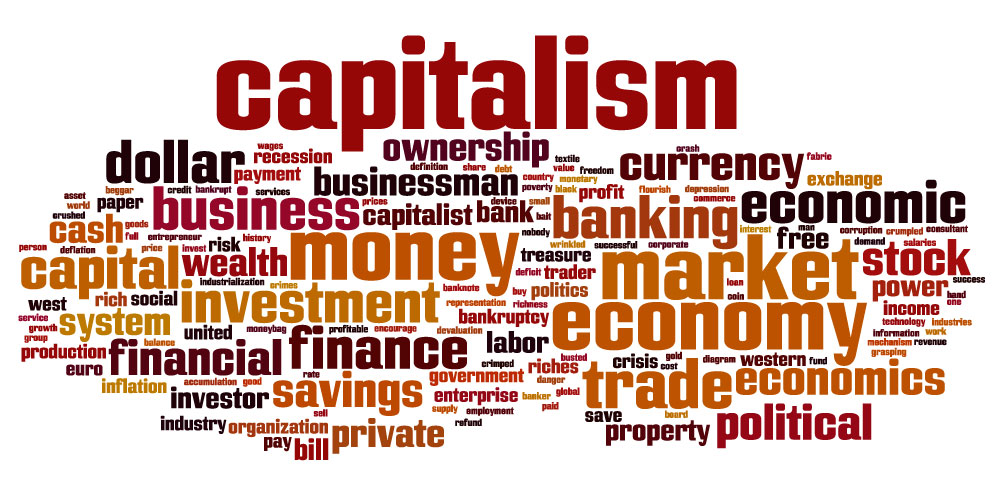
The stock market had a great week, at the same time a record six million people filed for unemployment benefits. It doesn’t take a genius to realize there is something incongruent with these two data points. Our economy succeeds when there is a healthy balance of buyers and sellers of goods and services. The cataclysmic effects of the Coronavirus, and the efforts of governments from around the world to try to stabilize their respective economies will provide an interesting case study on the debate between supply-side versus demand-side economic theories.
To make this really simple, supply-side theory essentially argues that economic growth is best achieved by providing benefits to investors and employers typically in the form of reduced taxes and deregulation – and that by doing so, money will “trickle-down” to consumers in the form of high wages. Demand-side economics argues that very little benefit to the economy occurs when you focus on the investors and employers because people who already have lots of money don’t typically spend the extra cash they receive from tax breaks. They save it or invest it in stocks and other things. Demand-side proponents instead believe the healthiest economies occur when economic policies directly benefit consumers and workers, giving them more money to spend; and by creating more demand, investors and employers also benefit because they have more customers to sell to. Historically, Democrats have typically supported demand-side economic policies and Republicans have tended to support supply-side policies, although this is not always the case and I’ll get to that in a moment. Both political parties have their take on various social policies, but in the end, the manner in which our economic resources are distributed has the greatest impact on our quality of life.
The recent surge in the stock market in the face of massive layoffs, suggests that investors are betting that the U.S. government will bail out big companies and protect their investments. However, earlier this week, GOP Senator Josh Hawley from Missouri, pushed for a recovery package that rather than directing most of the capital infusion to employers, the U.S. government would pay for 80% of the wages for all workers up to the national median wage. The plan mirrors a plan currently being implemented in Denmark. Chamath Palihapitiya, the billionaire CEO of the investment company Social Capital goes even further by saying that the government should allow big companies to fail and instead direct all of the recovery money to workers. Hawley and Palihapitiya both argue that a focus on middle class workers is what is best for economic growth and stability in the long run. I agree with both of these guys.
I believe in capitalist principles. I believe an incentive-based economy leads to a broad array of benefits to our society including innovation and competitive prices; but I’m no libertarian…and as a person who has spent as much time as I have studying the impact that various government policies have on the largely working-class Hispanic community, I also know that our system is imperfect. Not everyone starts from the same place and I am 100% certain that economic policies that mostly favor corporations and wealthy people rarely trickle down to America’s working-class. I am also an investor and an employer, and I have seen how my companies and my investments thrive when demand is strong.
In the housing market, 2020 will NOT be a repeat of 2008 and here is why: prior to 2008, builders were building homes as fast as they could because literally anyone could qualify for a mortgage and people who couldn’t afford even one home, were buying two or three. Subprime lending created the illusion that demand was strong, but the fundamentals were not there, and when the dust started to settle, there was a massive over-supply of housing stock and the market came crashing down. Between 2008 and 2012, home prices in America dropped 30% across the board. If anything, in 2020 the supply and demand balance has flipped, America has added nearly 12 million new households in the last 10 years, and home builders, weary after getting creamed in 2008, have not kept up. Subprime lending has all but disappeared and the buyers who can qualify for a mortgage have the strongest credit profiles in decades. This time when the dust settles, the market will rebound quickly, because demand will be strong as supply remains limited. Capitalism works, but only when there is a strong focus on the economic well-being of consumers.
What if Donald Trump’s greatest strength is something the rest of us refuse to acknowledge? In this thought-provoking episode, Gary Acosta explores what liberals, global leaders, and entrepreneurs might learn from Trump’s approach to leadership. From mastering direct communication to shaping loyalty through perceived authenticity, Gary dives into the mechanics of modern influence—even when the messenger is flawed. Whether you agree or disagree with Trump, the lessons here reveal surprising truths about power, persuasion, and strategy in today’s world.
What do people really mean when they say, “DEI is destroying our country”? In this powerful episode, Gary Acosta takes on the backlash against Diversity, Equity, and Inclusion—and asks whether it’s become a coded way to express racism. He breaks down myths about lowered standards, exposes the hypocrisy behind legacy admissions, and challenges the silence around nepotism and privilege. DEI may be a polarizing term today, but Gary argues that its core values remain essential to capitalism, innovation, and fairness in America’s future.
The Latino brand impacts every aspect of our lives—from how we're viewed in business and media to the opportunities we’re given. In this first episode, Gary Acosta explores why a unified, empowered narrative is essential for Latino prosperity. Learn what Gary shared at the United Nations, how he raised $100M for Latino-led ventures, and why changing the perception of our community is the key to unlocking capital, influence, and success.
